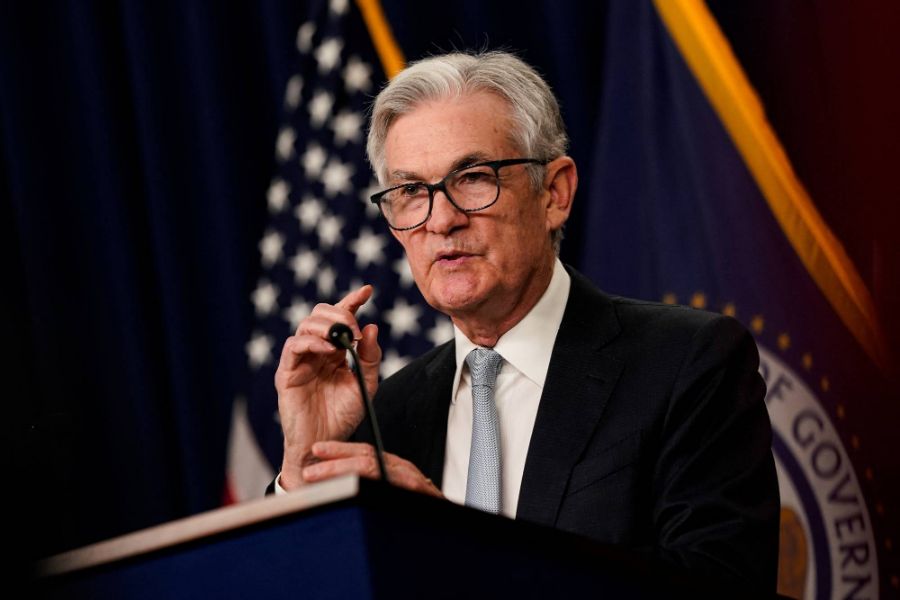
-
Published: 08 March 2023

US Federal Reserve Chairman Jerome Powell told lawmakers during testimony at a hearing before the US Senate Committee on Banking, Housing, and Urban Affairs on the semi-annual monetary policy report to Congress in Washington, DC, that the central bank will be forced to raise interest rates to higher levels if economic data are strong.
Edited by| Christian Megan
Economy section - CJ journalist
NEW YORK, March 7
U.S. Federal Reserve Chair Jerome Powell's tough talks on interest rates spooked investors, leaving both the equities and the oil markets to finish sharply lower.
The Dow Jones Industrial Average fell 574.98 points, or 1.72 percent, to 32,856.46. The S&P 500 sank 62.05 points, or 1.53 percent, to 3,986.37. The Nasdaq Composite Index shed 145.40 points, or 1.25 percent, to 11,530.33.
All the 11 primary S&P 500 sectors ended in the red, with financials and real estate down 2.54 percent and 2.5 percent, respectively, leading the slide.
The oil markets were also under considerable pressure as traders worried that Fed's aggressive rate hikes may hurt the economy and subdue demand for energy.
The West Texas Intermediate for April delivery dropped 2.88 U.S. dollars, or 3.58 percent, to settle at 77.58 dollars a barrel on the New York Mercantile Exchange. Brent crude for May delivery lost 2.89 dollars, or 3.35 percent, to close at 83.29 dollars a barrel on the London ICE Futures Exchange.
The above market reactions came as Powell's latest remarks raised the potential for more aggressive interest rate hikes.
Powell appeared before the U.S. Senate Banking Committee as part of his semiannual monetary policy testimony before Congress.
The Fed chief told lawmakers that the central bank would have to raise rates to higher levels if the economic data was strong.
He also noted that Fed was prepared to move in larger steps if it believed that such measures were necessary to fight inflation.
"If the totality of the data were to indicate that faster tightening is warranted, we would be prepared to increase the pace of rate hikes," Powell said.
He warned that the process of getting inflation back down to 2 percent "has a long way to go and is likely to be bumpy," adding "restoring price stability will likely require that we maintain a restrictive stance of monetary policy for some time."
The Fed raised rates by 25 basis points on Feb. 1, setting the target range for the federal funds rate to 4.5-4.75 percent. The quarter-point increase represented a slowdown from the half-point move in December, and the Fed's next policy meeting will be on March 21-22.
Fed-funds futures traders are pricing in a 71.2 percent probability of a 50 basis point hike at the March meeting, up from a 31.4 percent chance in the prior session, according to the CME FedWatch tool on late Tuesday.
"The Fed's rate path has re-emerged as a primary risk driver for markets," as recent inflationary signals from the United States have "forced markets to rethink how far the Fed will go," said UBS analysts.
"Uncertainty about the trajectory for inflation, monetary policy, and economic growth is likely to keep markets volatile in the months ahead," they said.
